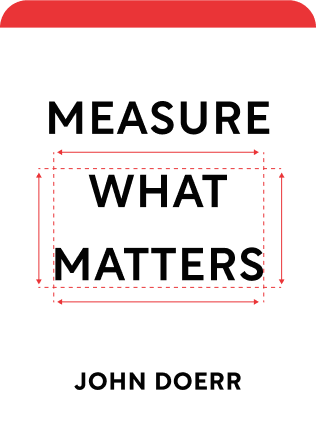

This article is an excerpt from the Shortform summary of "Measure What Matters" by John Doerr. Shortform has the world's best summaries of books you should be reading.
Like this article? Sign up for a free trial here .
What do cloud-based management systems have to do with OKRs? How can a cloud-based management system help your organization?
Cloud-based management systems are used to allow companies to communicate effectively, and be transparent about their OKRs. As a result, company performance improves overall.
Keep reading to find out how cloud-based management systems help you create and track your OKRs.
Choose a Cloud-Based Management System
In order to effectively track OKRs, you first need a place to store and share them. General-purpose software, such as Microsoft Word, can only get you so far. One Fortune 500 company had to completely revise their OKR system after starting with Word: They realized that quarterly goals in Word from all 82,000 employees resulted in 328,000 distinct Word files annually. These files were public, but did anyone read them? If nobody knows your OKRs, are they really transparent?
A better system is a cloud-based business management software, many of which include mobile apps, analytic tools, automatic updating, and integration with other services. (Shortform note: Cloud-based business management software include WorkBoard, Ally, Culture Amp, Asana, and many others.)
The benefits of a cloud-based management system:
- They make goals visible because it’s easy to find the OKRs of your boss, your colleagues, your direct reports, and people in other departments. The other benefits stem from this all-important one.
- They increase your engagement with your goals because you can clearly see how they align with the goals of the company.
- They allow you to network with your colleagues because, again, your colleagues’ goals are easy to find and see.
- They save you time, money, and energy because you’re not hunting for the relevant Word docs, emails, and notes. Everything you need is in one place, and it’s easily searchable.
Subjective Self-Assessment
Objective data are important, but they don’t always tell the whole story. Low numbers could conceal a strong effort, and strong numbers could be inflated.
For example, let’s say your objective is to recruit more customers, and one of your key results is to make 50 phone calls to potential customers. You end up making 35 phone calls, for an objective score of 0.7. On paper, this looks like a success. But if you waited until the last minute and rushed through your calls, signing only 1 new customer, the objective score of 0.7 isn’t really indicative of your performance.
For this reason, it’s important to balance objective scores with subjective self-assessments. Work with your manager to compare objective scores with the circumstances that led to them.
Reflection
To learn from your experiences and scores, use these questions as a jumping-off point for group discussion and self-reflection:
- Did you meet your objectives? If you did, what factors helped you be successful? If you didn’t, what roadblocks did you face?
- What have you learned that you want to keep in mind during the next OKR cycle?
Using cloud-based business management software can contribute to company progress by improving transparency and helping companies track goals.

———End of Preview———
Like what you just read? Read the rest of the world's best summary of John Doerr's "Measure What Matters" at Shortform .
Here's what you'll find in our full Measure What Matters summary :
- How Google uses OKRs to rally 100,000 employees in the right direction
- How to avoid setting useless OKRs, and how to set great ones
- Key subtle behaviors your team must master to make OKRs work






